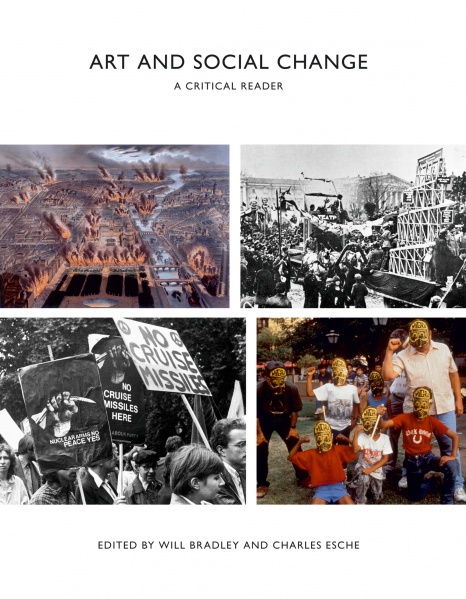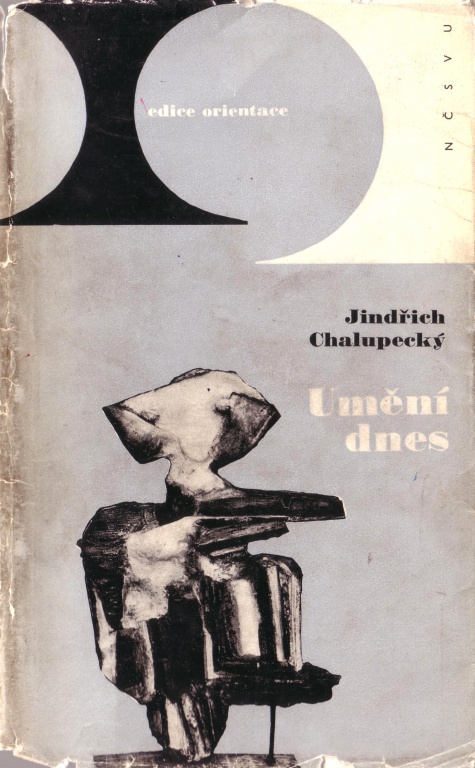Peter Bürger: Theory of the Avant-Garde (1974–) [DE, EN, ES, PT, CZ]
Filed under book | Tags: · 1920s, aesthetics, art, art criticism, art history, art system, art theory, avant-garde, collage, literary theory, literature, modernism

“In this volume, Peter Bürger formulates a theory of the ‘institution of art’. He argues that the social status of literature and art cannot be explained by making simple, direct links between the contents of individual works and social history. Rather, he holds, it is the social status of art, its function and prestige in society, that provides the connection between the individual art work and history. Bürger’s concept of the institution of art establishes a framework within which a work of art is both produced and received.
The French and German literary and visual avant-garde of the 1920s provides the test of Bürger’s theory. Focusing on the role of the artistic manifesto and, particularly, on the collage as an art form, he shows how avant-garde movements questioned the autonomous, self-referential status of art in bourgeois society and thus represented a radical break with the aestheticism of high modernism. Bürger attacks metaphysical aesthetics and argues instead for a materialistic aesthetic theory for today, one that is rooted in the reality of the social sphere. His theory calls into question any conventional concept of art derived from Romantic notions of organic unity.
Theory of the Avant-Garde provoked such discussion in Germany that its publisher, Suhrkamp Verlag, issued a book of responses that was more than twice the size of Bürger’s own book.” (from the back cover)
German edition
Publisher Suhrkamp, Frankfurt am Main, 1974
Second edition, 1993
147 pages
English edition
Translated by Michael Shaw
Foreword by Jochen Schulte-Sasse
Publisher University of Minnesota Press, 1984
Theory of History and Literature series, 4
ISBN 0816610673
134 pages
Reviews: Benjamin Buchloh (Art in America, 1984), Leah Ulansey (MLN, 1984), Daglind Sonolet (Telos, 1984), Michael T. Jones (German Quarterly, 1986), Martin Vrba (A2, 2016, CZ).
Publisher (DE)
Publisher (EN)
Publisher (CZ)
Theorie der Avantgarde (German, 2nd ed., 1974/1993, updated on 2020-10-13)
Theory of the Avant-Garde (English, 1984, assembled from various sources, no OCR, updated to full version on 2014-5-12 via Charles, updated to OCR version on 2016-1-23 via a2, 12 MB)
Teoría de la vanguardia (Spanish, trans. Jorge García, 1987), 3rd edition (2000, 51 MB)
Teoria da vanguarda (Portuguese, trans. Ernesto Sampaio, 1993)
Teorie avantgardy (Czech, trans. Václav Magid, 2015, added on 2020-4-5)
See also Bürger’s essay Avant-Garde and Neo-Avant-Garde: An Attempt to Answer Certain Critics of Theory of the Avant-Garde, 2010.
Comments (4)Will Bradley, Charles Esche (eds.): Art and Social Change: A Critical Reader (2007)
Filed under book | Tags: · aesthetics, art, art history, art theory, avant-garde, bauhaus, constructivism, dada, politics, revolution, situationists, social movements, subversion, zapatistas

“The desire to change the world has often led artists to align themselves with wider social movements and to break with established institutions of art. This reader gathers together an international selection of artists’ proposals, manifestos, theoretical texts and public declarations that focus on the question of political engagement and the possibility of social change. The approaches represented are many and diverse, from Gustave Courbet’s involvement in the Paris Commune and the socialist art theory of William Morris to the hybrid activist practice associated with the twenty-first century ‘movement of movements’; from the political commitments of the Modernist avant-gardes to the rejections of Modernism in favour of protest, critique, utopian social experiment or revolutionary propaganda. Six specially commissioned essays – by Geeta Kapur, Lucy Lippard, John Milner, Gerald Raunig, Marina Vishmidt and Tirdad Zolghadr – further explore both the historical context and the contemporary situation.”
Publisher Tate Publishing, in association with Afterall, London, 2007
ISBN 9781854376268
479 pages
Commentary: Marco Deseriis and Brian Holmes (Mute).
Comments (3)Jindřich Chalupecký: Umění dnes (1966) [Czech]
Filed under book | Tags: · abstract art, art, art criticism, art history, art theory, avant-garde, happening, kinetic art, op art, pop art, theatre

A collection of essays on modern art by the eminent Czech art critic and art historian.
“Podoba výtvarného umění se od konce 2. světové války prudce měnila. Ve čtyřicátých letech nastoupily nové nefigurativní směry, označované jako lyrická abstrakce, akční malba, materiálové umění, a nabyly v desetiletí 1950-1960 takového významu, že se abstrakce zdála jedinou možností moderního umění. Ale od začátku šedesátých let se uplatňuje řada tendencí docela jiných a mnohdy překvapivých: pop art, nová figurace, kinetismus, vizualismus…
Tento vývoj byl u nás sledován neúplně a zkresleně. Autor se proto snaží v řadě esejů, které jsou jádrem knihy, vylíčit dramatickou situaci, do níž dospělo moderní umění, a kriticky ukázat původ a smysl tohoto složitého dění. Těmto esejům předesílá informativní přehled vývoje avantgardního umění od abstraktního expresionismu, dada a surrealismu až k nejposlednějším experimentům, jako jsou happenings, v nichž se stupňuje působení uměleckého díla až do divadelních forem, a events, dematerializujících naopak umělecké dílo až v pouhý pomysl. V syntetickém závěru konečně ukazuje sociální a historický smysl současného umění. 64 ilustrací text dokumentuje.” (from the cover)
Publisher Nakladatelství československých výtvarných umělců, Prague, 1966
Volume 3 of Monoskop Unlimited Edition Series
263 pages
PDF (89 MB, no OCR)
For more from Chalupecký see Monoskop wiki.

